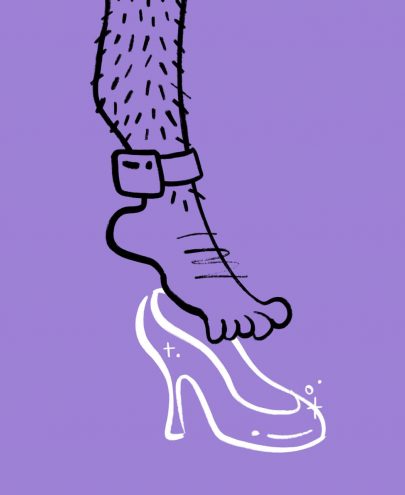Oct 10, 2016 etc
The Nobel laureate and revered archbishop rocks the religious world.
In a Washington Post op-ed on October 6, 85-year-old Archbishop Emeritus and Nobel Peace Prize laureate Desmond Tutu created waves around the world by stating he wanted the option of being assisted to die.
In 2014, in an article in the Guardian, he had publicly reversed his longstanding opposition to assisted dying but he was coy about his personal preference. Now he has come out and said it explicitly.
Tutu is the closest the Anglican church has to a living saint and its hierarchy will be dismayed to see his views getting such attention.
It has created waves because while it’s one thing to not want to impose your own beliefs about assisted dying on others, it moves the debate to a higher level entirely when you have Bishop Tutu’s moral authority and religious standing worldwide and you state you want the option for yourself.
He is the closest the Anglican church has to a living saint and its hierarchy will be dismayed to see his views getting such attention because it is deeply opposed to any liberalisation of the current laws prohibiting assisted dying — as church representatives have already made clear to our own select committee inquiry.
While asserting his belief in the sanctity of life, Tutu believes this should not trump compassion. In the Washington Post, he said: “Just as I have argued firmly for compassion and fairness in life, I believe that terminally ill people should be treated with the same compassion and fairness when it comes to their deaths.
Dying people should have the right to choose how and when they leave Mother Earth. I believe that, alongside the wonderful palliative care that exists, their choices should include a dignified assisted death.”
Act MP David Seymour — who has a member’s bill in the parliamentary ballot to legalise assisted dying — described the article thus: “Desmond Tutu’s beautifully written Washington Post op-ed might as well be an open letter to New Zealand opponents of assisted dying. The challenge for assisted dying opponents in New Zealand, particularly the religiously motivated ones, is whether they will denounce a Nobel Prize-winning archbishop, or accept that there is nothing incompatible about Christianity and assisted dying.”
In fact, Seymour’s description of the op-ed being much like an open letter to New Zealanders is more accurate than you might first guess.
In the accompanying embedded video — but omitted in the body of the article — Bishop Tutu references New Zealand directly: “My friend‚ Lord Carey [the retired Archbishop of Canterbury]‚ has passionately argued for an assisted dying law in the United Kingdom. His initiative has my blessing and support – as do similar initiatives in my home country‚ South Africa‚ in the United States‚ New Zealand‚ and parts of the European Union‚ and right across the world.”
It might seem curious that Tutu should bless pro-euthanasia campaigners in New Zealand, not least because the debate is also raging in several Australian states, with either South Australia or Victoria looking likely to be the first to change their laws.
In fact, Tutu has a longstanding admiration for New Zealand as a progressive nation that dates back to the 80s and the bitter controversy over Springbok tours.
He visited here a year or so before the All Blacks were due to tour South Africa in 1985 and was very impressed that so many New Zealanders were willing to oppose apartheid at great personal cost, especially during the Springboks’ fractious 1981 tour that saw the nation bitterly divided between supporters and opponents.
(If you want to be reminded of the scale of the mayhem, watch this video clip, including a cameo by Tutu.)
Tutu has a longstanding admiration for New Zealand as a progressive nation that dates back to the 80s and the bitter controversy over Springbok tours.
In mid-1985, I was the editor of New Outlook, a current affairs magazine, and we had the honour of publishing exclusively an open to letter to New Zealand from Bishop Tutu asking that the proposed All Black tour that year be abandoned.
He wrote: “In South Africa, the impression created was that those who were opposed to the 1981 Springbok Tour had been the lunatic fringe element — scruffy, unkempt, student louts with nothing better to do”.
But during his visit, he said, he was “amazed at the calibre of people who had marched in the protests against that rugby tour” and “the commitment of so many of you to the cause of justice, peace and reconciliation”.
After detailing the injustices black people in South Africa endured — including that he, “a bishop, 53 years old, cannot vote” — Tutu ended his plea for the rugby board and the All Blacks to cancel their tour with: “It is not too late to change and align yourselves with justice, peace and reconciliation. I pray you will hear our cri de coeur.”
Now, more than 30 years later, Tutu has made another powerful cri de coeur against injustice — this time for the terminally ill. He ended his Post appeal: “In refusing dying people the right to die with dignity, we fail to demonstrate the compassion that lies at the heart of Christian values.
I pray that politicians, lawmakers and religious leaders have the courage to support the choices terminally ill citizens make in departing Mother Earth. The time to act is now.”
Will the religious groups and politicians driving the resistance to assisted dying in New Zealand acknowledge, like Bishop Tutu, that the terminally ill deserve the option of an easier death? Will they, like Bishop Tutu, acknowledge the primacy of compassion as one of the greatest of the Christian virtues?
Like many others — including large numbers of their own congregations — I think they should and I hope they will.





